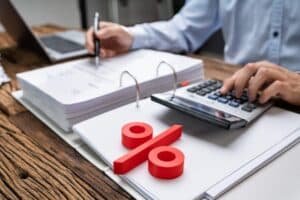
UAE VAT Guide for Beginners in 2025
1. Understanding VAT Basics VAT (Value Added Tax) is a 5% tax that businesses in the UAE must add to the price of goods or
As a business owner, having a clear picture of your company’s financial health is crucial. One of the key tools to achieve this is your balance sheet. But what exactly is a balance sheet, why is it so important, and how can our accounting firm help you manage it effectively?
A balance sheet is a financial statement that provides a snapshot of your company’s financial position at a specific point in time. It shows three key components:
The balance sheet is structured around this simple equation:
Assets = Liabilities + Equity
This ensures that the balance sheet remains balanced, reflecting both the financial obligations and the value that belongs to the business owners.
There are different formats you might encounter or need, including:
For small to medium-sized businesses, reviewing the balance sheet quarterly is a good practice. Larger companies or those with complex finances might benefit from monthly reviews to stay on top of changes in their financial position.
By analyzing the numbers in your balance sheet, you can calculate important ratios that offer deeper insights into your business’s financial performance, such as:
Even experienced business owners can make mistakes when preparing a balance sheet. Here are some common errors to avoid:
Research shows that businesses that maintain proper financial records, including accurate balance sheets, are more likely to succeed. In fact, businesses with organized accounting records are 33% more likely to thrive after five years than those without. Additionally, a report by Intuit revealed that 50% of small businesses fail within the first five years, often due to poor financial management. This underscores the importance of keeping accurate financial records to support growth and sustainability.
At AccountAbility, we specialize in simplifying accounting and bookkeeping for businesses of all sizes. Here’s how we can help:
A Healthy Balance Sheet Equals a Healthy Business. A well-prepared balance sheet reflects a well-managed business. It helps you track your financial performance, attract investors, and make informed decisions for growth. By outsourcing your accounting needs to AccountAbility, you gain more than just accurate financial records—you get peace of mind, knowing that your business is set up for long-term success.
If you have any questions or need further information, please book your free consultation with us at +971 50 6235061 or info@accountbility.ae.

1. Understanding VAT Basics VAT (Value Added Tax) is a 5% tax that businesses in the UAE must add to the price of goods or

Important Update for Businesses: Avoid AED 10,000 Penalty—Act Now! The UAE Federal Tax Authority (FTA) has announced a special one-time initiative to support businesses by

Understanding Your Balance Sheet: Why It Matters for Your Business As of 24 September 2024 by AccountAbility Team As a business owner, having a clear
Office 205, 2nd Floor, Bay Square,
Building 11, Business Bay, Dubai, UAE